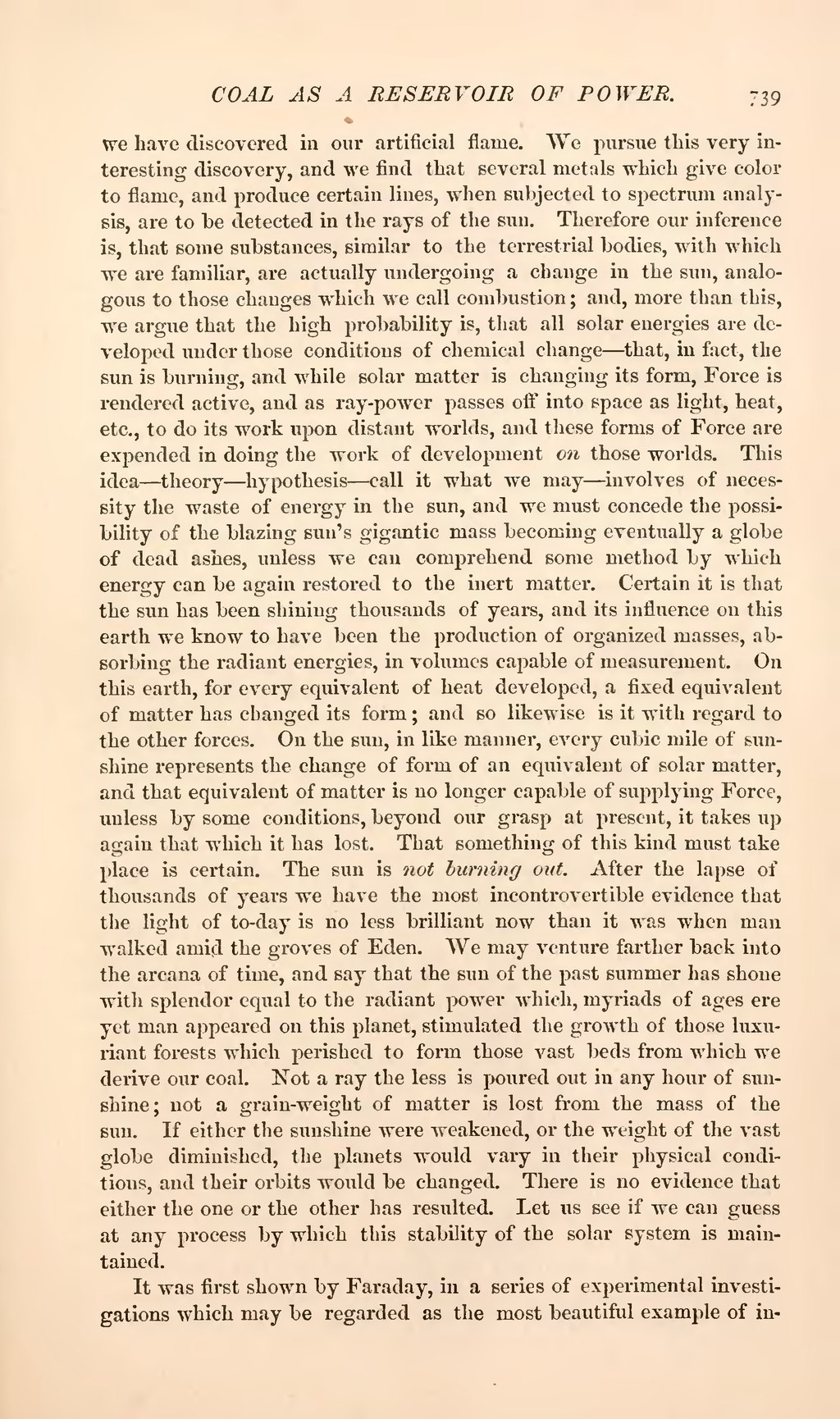we have discovered in our artificial flame. We pursue this very interesting discovery, and we find that several metals which give color to flame, and produce certain lines, when subjected to spectrum analysis, are to be detected in the rays of the sun. Therefore our inference is, that some substances, similar to the terrestrial bodies, with which we are familiar, are actually undergoing a change in the sun, analogous to those changes which we call combustion; and, more than this, we argue that the high probability is, that all solar energies are developed under those conditions of chemical change—that, in fact, the sun is burning, and while solar matter is changing its form, Force is rendered active, and as ray-power passes off into space as light, heat, etc., to do its work upon distant worlds, and these forms of Force are expended in doing the work of development on those worlds. This idea—theory—hypothesis—call it what we may—involves of necessity the waste of energy in the sun, and we must concede the possibility of the blazing sun's gigantic mass becoming eventually a globe of dead ashes, unless we can comprehend some method by which energy can be again restored to the inert matter. Certain it is that the sun has been shining thousands of years, and its influence on this earth we know to have been the production of organized masses, absorbing the radiant energies, in volumes capable of measurement. On this earth, for every equivalent of heat developed, a fixed equivalent of matter has changed its form; and so likewise is it with regard to the other forces. On the sun, in like manner, every cubic mile of sunshine represents the change of form of an equivalent of solar matter, and that equivalent of matter is no longer capable of supplying Force, unless by some conditions, beyond our grasp at present, it takes up again that which it has lost. That something of this kind must take place is certain. The sun is not burning out. After the lapse of thousands of years we have the most incontrovertible evidence that the light of to-day is no less brilliant now than it was when man walked amid the groves of Eden. We may venture farther back into the arcana of time, and say that the sun of the past summer has shone with splendor equal to the radiant power which, myriads of ages ere yet man appeared on this planet, stimulated the growth of those luxuriant forests which perished to form those vast beds from which we derive our coal. Not a ray the less is poured out in any hour of sunshine; not a grain-weight of matter is lost from the mass of the sun. If either the sunshine were weakened, or the weight of the vast globe diminished, the planets would vary in their physical conditions, and their orbits would be changed. There is no evidence that either the one or the other has resulted. Let us see if we can guess at any process by which this stability of the solar system is maintained.
It was first shown by Faraday, in a series of experimental investigations which may be regarded as the most beautiful example of in-
